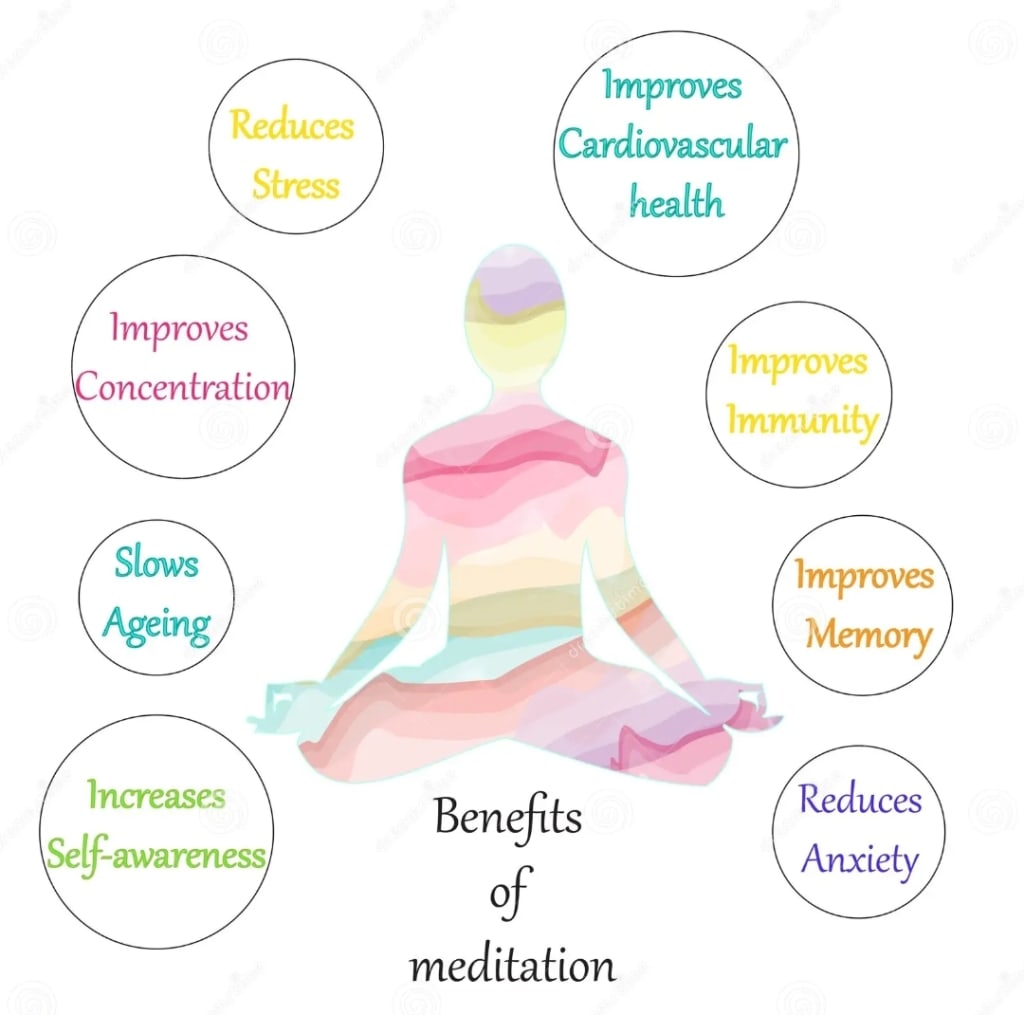
If you believe it’s not effective, that doesn’t imply there’s no possibility left.
I’ve been on a path to enhance my mental and physical wellness for the last four years. It can be a complex journey at times, yet I’ve achieved significant strides in these recent years. My approach has varied widely, including everything from cognitive-behavioral therapy to meditation, yoga, and physical exercise.
At times, it requires considerable effort to prioritize your mental and physical well-being. I’m primarily delving into meditation for its mental health advantages, but it also offers a plethora of physical health benefits that have been scientifically validated as effective interventions. When you’re not feeling your best, initiating the process can be challenging. Regardless of your reasons for attempting meditation, expect some discomfort as you begin. Not everyone can simply sit quietly with good posture and effortlessly enter a deep state of meditation.
Meditation is an extremely individualized experience. We all engage in activities differently and approach challenges with varying perspectives. There isn’t a universal meditation method that suits everyone perfectly. If you’re facing difficulties with meditation, it’s crucial not to immediately fault yourself for it.
Before diving into meditation, one must embrace the concepts of self-acceptance and mindfulness.
When I first ventured into yoga and attempted meditation, the messages didn’t connect with me. They lacked sincerity. Initially, phrases like “forgive yourself, accept yourself, and love yourself” seemed like unrealistic ideals.
I believe part of that sentiment stems from my upbringing. Growing up in a small town in suburban America, being different felt like a crime. If you stood out, your family and neighbors would gossip about you. I almost feel like my little town, with a population under 2,000, is stuck in a time warp from 50 years ago. Unfortunately, this also means many individuals there aren’t particularly progressive.
With this background, even yoga and meditation were perceived as oddities, subject to judgment. I think this contributed to my struggles in getting started — fear of being seen as different.
Regardless of your reasons, if you’re finding it tough to begin, a bit of self-reflection might be necessary to identify what’s creating those hurdles. There might be something in your subconscious making it hard to accept these positive assertions. It could be related to your upbringing, similar to my experience.
Experimentation is key to discovering which meditation practices resonate with you.
Another factor that has significantly aided me in maintaining a consistent meditation practice and being genuinely mindful is understanding that not every meditation technique is suitable for me. If certain approaches aren’t resonating with you, that’s perfectly fine. We are all unique beings with different learning styles and personal preferences. There’s immense beauty in this diversity, though it also means some practices will resonate while others may not.
If you’re eager to engage in meditation but find it challenging, explore various techniques and methodologies. Guided meditations can be incredibly beneficial. In these, an instructor will guide you through the phases of initiating your meditation, enhancing your breathing, and soothing your thoughts. These gentle prompts can be very helpful if your mind begins to wander. Furthermore, learning from compassionate meditation instructors who encourage you to return to a state of calmness after acknowledging your thoughts can teach you to be kinder towards yourself when distractions arise.
Exploring a variety of meditation techniques is vital.
· Guided meditations
· Sound healing meditations
· Visualization techniques
· Body scans — concentrating on a different body part with each breath
· Attuning to your surroundings without analytical thought
· Counting the duration of your inhales and exhales
· Alternate nostril breathing
· Meditating accompanied by music
· Syncing your breathing with meditation music
There are countless methods and techniques for meditation. If you’ve explored several and none resonated, continue to try new ones. You might unearth something that truly speaks to you. For me, counting the length of my inhales and exhales is quite helpful; it occupies my mind while I aim to still my thoughts. Although there’s still some activity happening in my mind, it aids in calming me and focusing on living in the present.
Always bear in mind that meditation is a skill that improves with practice.
When you’re finding it difficult to meditate, consider another skill you possess. Was it a natural gift that came effortlessly? Or was it a skill that you developed through effort and dedication? It can be any skill — the ability to navigate complex software, the knack for folding laundry efficiently.